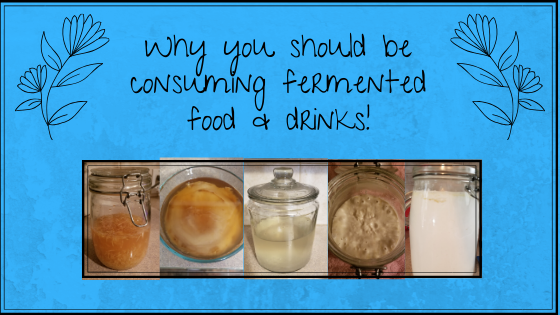
Why you should be making & consuming fermented foods.
Disclaimer – This post contains affiliate links. If you purchase something through an ad I could receive a small commission at no extra cost to you. Thank you for your support.
Disclaimer – These are my opinions and thoughts. I am not a doctor, these are things I have found that work for me and they are my interpretation. Please consult your physician before starting any new health regimens.
Hello everyone, thanks for stopping by!
If you’re familiar with my blog then you probably know that I love fermenting! To me, the process is fascinating not to mention the many health benefits! As someone who suffers from 2 autoimmune diseases as well as PCOS, I had to do a lot of research to find something that would ease my symptoms even just a little.
Leaky gut.
All diseases start in the gut.
Both huge factors in autoimmune issues.
Probiotics and digestive enzymes are two big things to help heal the gut. Now the problem with that is those two things, particularly in pill form, are that they are crazy expensive! So I researched a little further, which led me to ferment.
What it’s all about & why you should be consuming them.
Fermentation is one of the oldest methods of preserving and adding nutritional value to foods and drinks. In most cases, the fermentation process creates more nutrients and helps to get rid of any toxins.
During the process, the food or drink is left to sit and culture while the food’s natural sugars and carbs provide food for the natural bacterias and yeasts. This not only adds beneficial bacteria and healthy digestive enzymes to your gut but it also makes it so your gut and gets the most nutrients from the other foods you eat.
It’s a good idea to consume more than one type of fermented food because each one offers something a little different.
Benefits of probiotics
- boosts immune system
- helps with weight loss
- fights allergies
- helps manage blood sugar
- reduces inflammation
- it’s said to help with anxiety – probiotics help reduce cortisol, the stress hormone that’s linked to anxiety
- boosts mood and cognitive function. It’s estimated that 90% of serotonin is made in the gut
- helps with digestive issues
How to introduce them into your diet
If you’re new to fermented foods I would suggest starting slow. Maybe 1/2 cup – 1 cup per day and build up from there. Starting with too much right away can cause stomach upset and diarrhea or constipation. Your gut needs time to adjust – too much of a good thing is still too much!
7+ fermented foods and their benefits
- Milk Kefir – high levels of B vitamins, calcium, magnesium, probiotics, digestive enzymes and more
- Water Kefir – probiotics, digestive enzymes & minerals. Compared with milk kefir this has less of those beneficial bacterias but it is delicious!
- Pickles – (not the mass produced type) vitamins, minerals, antioxidants, and probiotics
- Yogurt – Probiotics, helps lower blood pressure
- Kimchi – helps with digestive & heart health, probiotics, antioxidants
- Kombucha – Lots of B vitamins, digestive enzymes, probiotics
- Sauerkraut – Helps digestive health, improve circulation, fights inflammation, reduces cholesterol

Milk Kefir 
Water Kefir 
Kombucha Scoby 
Ginger Bug 
Sourdough Starter
Other examples are Apple cider vinegar (with the mother) tempeh, miso, raw cheese, ginger beer, sourdough starter, and the list could go on!
Store bought vs. homemade
I must say, on this point, it’s homemade all the way!!!
Most commercial produces have too much added sugar and salt. When you make your own you can control that. You definitely have to add sugar and/or salt but you can control the amount as well as the quality of ingredients.
Store-bought versions can be very expensive as well. This isn’t so bad if you’re not using them often but if it’s an everyday thing it can get crazy!
In a lot of cases, commercially fermented foods, particularly milk products, have been pasteurized. This process kills off most if not all of the beneficial bacterias. There’s really no point then!
Personally, I prefer to have the whole food rather than a pill. You can buy probiotics and digestive enzymes in pill form as most people know but the price is outrageous and you’re not getting all those other wonderful benefits you’d get from eating or drinking fermented foods.
You likely won’t be needing many (if any) extra supplements if you consume homemade fermented foods. If you eat and drink a variety pretty much all of what you need is already in them! Bonus!!
If you do decide to buy commercially fermented food or drinks make sure it says “live cultures” or “active cultures” Anything along those lines, means that there are some active, healthy bacterias in there.
Well, that’s it, those are my thoughts. I hope this was helpful to you! I’ll be creating more posts on different ferments that I’ve tried so stay tuned. If you are interested and subscribe you’ll be notified whenever there’s a new post!
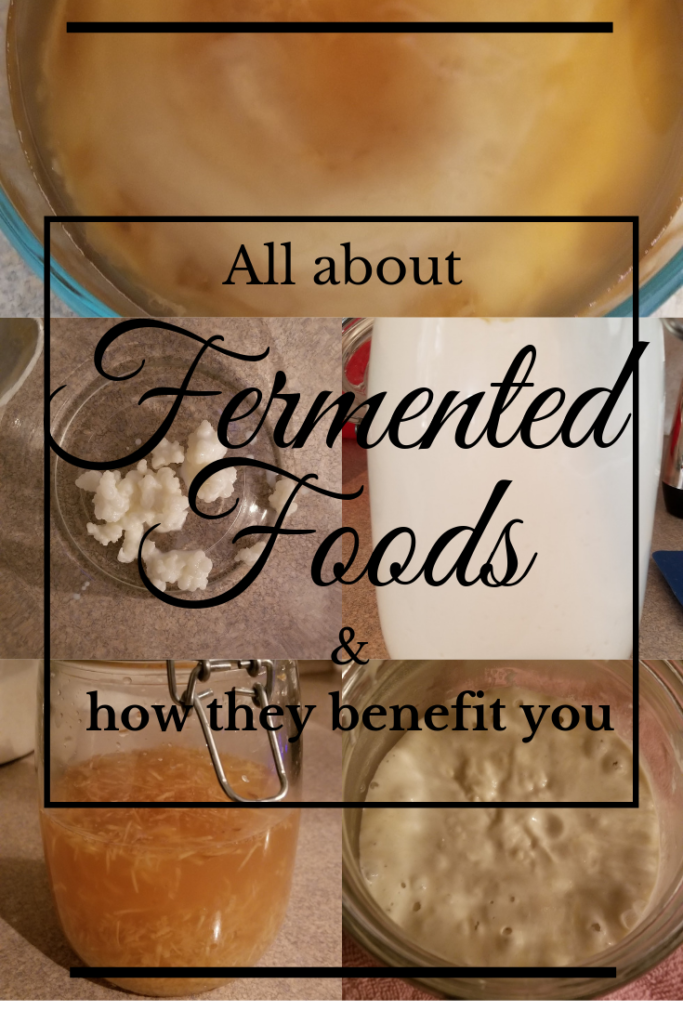
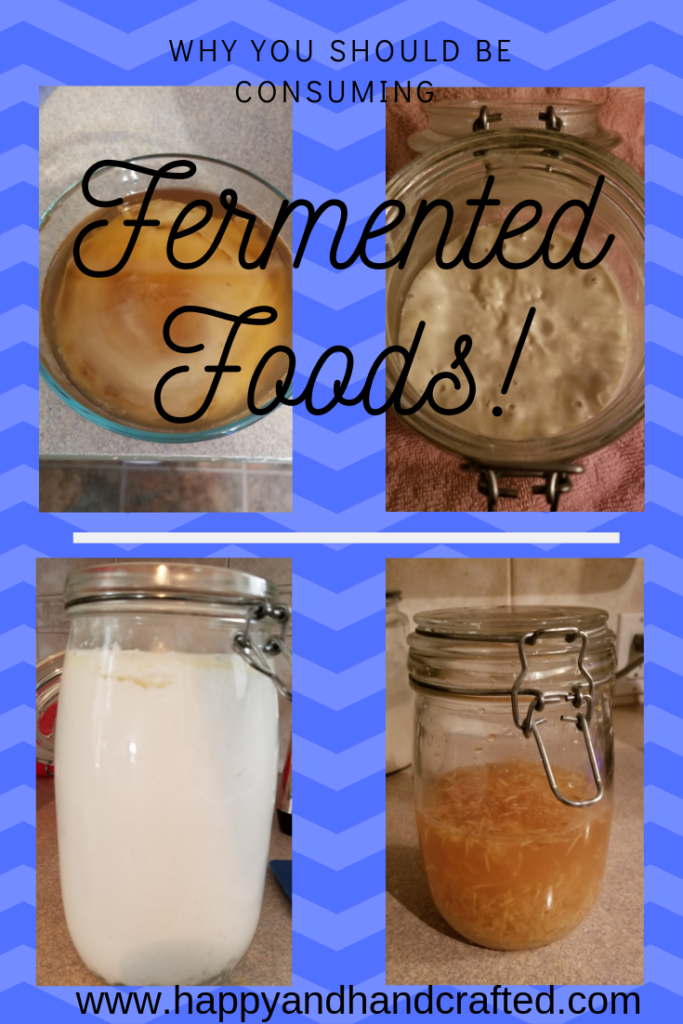

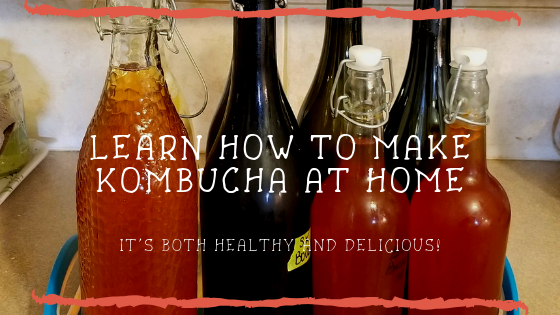

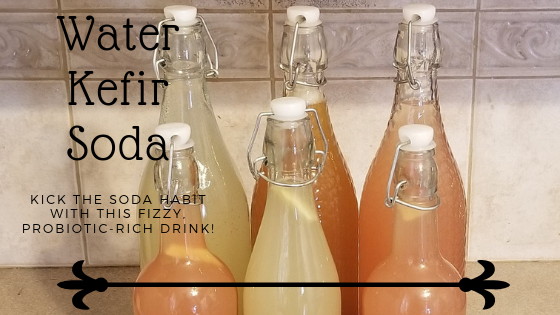
Comments
So much of the store bought yogurt and other fermented foods is full of sugar and lacking live cultures. You really need to be aware of what you’re actually putting in your body.
I agree with you 100% Tracy! It takes a bit more time but doing it yourself is so much better for you and that applies to so many things!
I definitely want to try the yogurt – especially now that I know the benefits. Store bought yogurt has so much sugar.
You’re right, at least this way you can control what goes in it!
omg thanks for sharing this!! I am going to try this!
https://myroutinesjade.jadieslittleblog.co.uk/2019/06/the-woods-with-hot-tub-best-place-to.html
Awesome, have fun with it!